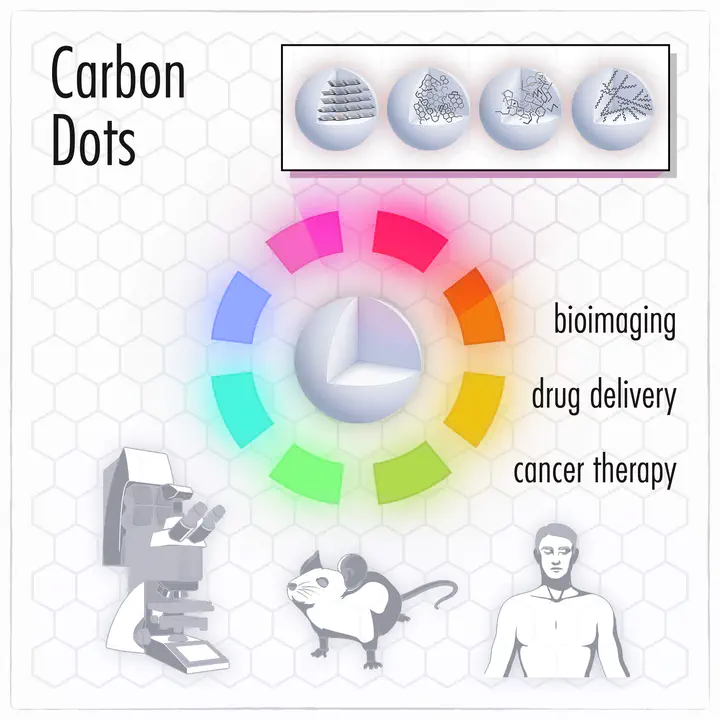
Abstract
Cancer, responsible for approximately 10 million lives annually, urgently requires innovative treatments, as well as solutions to mitigate the limitations of traditional chemotherapy, such as long‐term adverse side effects and multidrug resistance. This review focuses on Carbon Dots (CDs), an emergent class of nanoparticles (NPs) with remarkable physicochemical and biological properties, and their burgeoning applications in bioimaging and as nanocarriers in drug delivery systems for cancer treatment. The review initiates with an overview of NPs as nanocarriers, followed by an in‐depth look into the biological barriers that could affect their distribution, from barriers to administration, to intracellular trafficking. It explores CDs’ synthesis, both bottom‐up and top‐down approaches, and their notable biocompatibility, supported by a selection of in vitro, in vivo, and ex vivo studies. Special attention is given to CDs’ role in bioimaging, highlighting their optical properties. The discussion extends to their emerging significance as drug carriers, particularly in the delivery of doxorubicin and other anticancer agents, underscoring recent advancements and challenges in this field with examples of other promising bioapplications, emergent owing to the NPs flexible design. As research on CDs evolves, we envisage key challenges, as well as the potential of CD‐based systems in bioimaging and cancer therapy.